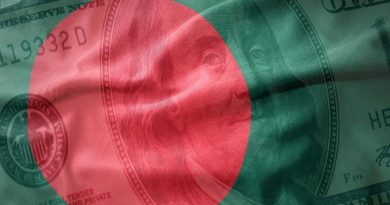The Bangladesh Securities and Exchange Commission (BSEC) has initiated stern regulatory action against Prime Finance and Investment Limited, a listed non-bank financial institution (NBFI), along with its two subsidiaries, in connection with a massive Tk 2.96 billion money laundering scandal.
In a press release issued on Monday, the BSEC disclosed that the financial misconduct was unearthed during a routine inspection of Prime Finance’s operations, which later led to a detailed investigation uncovering large-scale embezzlement through the misuse of margin loan facilities. The commission confirmed that the siphoned-off funds amounted to approximately Tk 2,960 crore, raising serious concerns over corporate governance and internal control systems within the institution.
According to BSEC findings, the fraudulent activities were primarily carried out under the supervision of several former top executives of Prime Finance and its subsidiaries — namely PFI Securities Limited and Prime Finance Capital Management Limited. The implicated individuals include former directors and managing directors who allegedly abused their authority to divert the funds over an extended period.
Regulatory Action and Legal Measures
In response to the discovery, the BSEC announced that it would formally request the Anti-Corruption Commission (ACC) to launch criminal proceedings against those involved in the scam. The regulatory body also stated its intention to recommend travel bans against the accused individuals, in an effort to prevent them from fleeing the country before legal procedures commence.
“The magnitude of financial irregularities is deeply alarming and represents a breach of trust with shareholders and investors,” the BSEC said in its statement. “We are committed to holding those accountable and restoring integrity in the capital market.”
Background of Prime Finance and Its Subsidiaries
Prime Finance and Investment Limited was incorporated in March 1996 under the Companies Act 1994 and began operations later that year. It was listed on both the Dhaka Stock Exchange (DSE) and the Chittagong Stock Exchange (CSE) in 2005, and has since been operating as a full-fledged non-bank financial institution, offering various financial products including lease financing, term loans, and investment services.
In 2010, the company established Prime Finance Capital Management Limited (PFCML) — a 60% owned public limited company engaged in merchant banking activities such as issue management, portfolio management, underwriting, and advisory services.
Another subsidiary, PFI Securities Limited, is a 46.15% owned entity involved in stock brokerage, securities trading, and offering margin loans to clients.
Both subsidiaries are now under scrutiny for their roles in facilitating the financial misappropriation. According to the BSEC, the collusion between the parent company and its affiliates enabled systematic diversion of client and institutional funds, severely undermining investor confidence.
Market Reaction and Investor Sentiment
The revelation of the scandal has had an immediate impact on the capital market. On Tuesday, the share price of Prime Finance & Investment Ltd. fell by 2.44% to Tk 4 per share on the Dhaka Stock Exchange — significantly below its face value of Tk 10. Investors expressed frustration over the company’s failure to ensure transparency and accountability, particularly in light of repeated warnings by regulators about weak corporate governance in the NBFI sector.
Market analysts noted that the development is yet another blow to an already volatile financial services sector, which has been grappling with rising default loans, poor oversight, and waning investor confidence.
BSEC’s Broader Oversight Efforts
This action comes as part of BSEC’s broader efforts to tighten oversight and enforcement in the capital market. The regulator has recently strengthened its surveillance and audit mechanisms in a bid to detect irregularities, especially within listed companies and financial institutions.
A senior BSEC official, speaking on condition of anonymity, said, “This is not an isolated case. We are continuing our risk-based inspections, and more actions will follow if similar violations are detected.”
What Comes Next
With the matter now being handed over to the ACC, formal investigations and legal proceedings are expected to follow swiftly. Observers say the case will be a test of both regulatory resolve and the effectiveness of anti-corruption mechanisms in Bangladesh’s financial system.
Meanwhile, stakeholders are calling for comprehensive reforms in the governance frameworks of NBFIs and their subsidiaries, including tighter internal audits, enhanced board accountability, and stricter penalties for financial misconduct.






